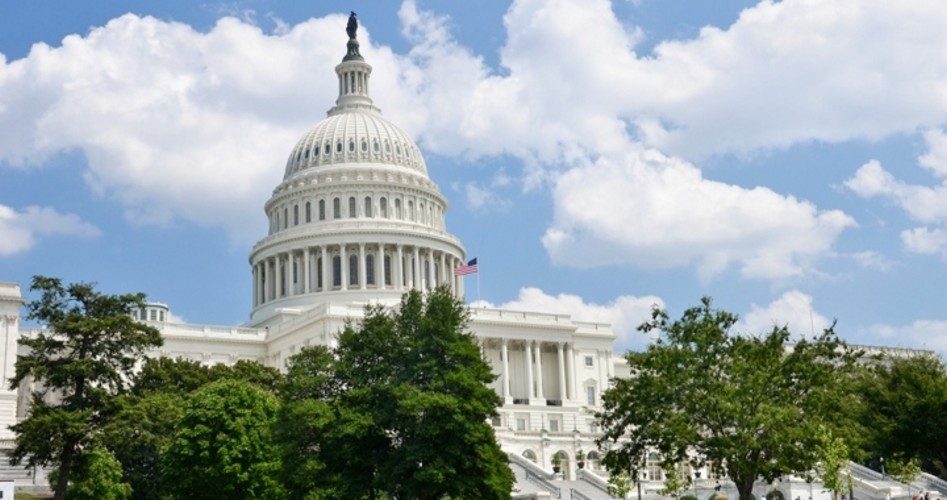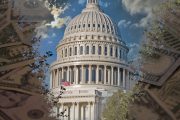
A lengthy and rather damning new report released by the Washington Post has revealed that 73 members of Congress have in some capacity backed legislation that stands to benefit businesses or industries in which either they or their relatives are invested. The analysis stems from an investigation by the Post of financial disclosure and public records for all 535 members of both congressional chambers.
Ethic rules drafted by Congress have permitted the practice, allowing legislators to sponsor or co-sponsor bills that benefit themselves or family members except when they are the sole beneficiaries. Between 2007 and 2011, lawyers for the House and Senate ethics committees have dispatched 2,800 written opinions to lawmakers, issued 6,500 emails, and offered advice over the phone some 40,000 times.
Currently, congressional ethics committees rarely discipline their own, instead offering advice and opinions that typically grant support and justification to members who pursue legislation that overlaps with their personal financial interests. And while Congress has forced executive branch officials to plunder themselves of financial interests that may pose ethical questions, lawmakers have conveniently omitted themselves from the injunction.
Kicking off the report, the Post provided a couple glaring examples of congressional members endowing themselves or their relatives with financial kickbacks or other special benefits:
A California congressman [Democrat Dennis Cardoza, now out of office] helped secure tax breaks for racehorse owners — then purchased seven horses for himself when the new rules kicked in.
A Wyoming congresswoman [Republican Cynthia M. Lummis] co-sponsored legislation to double the life span of federal grazing permits that ranchers such as her husband rely on to feed cattle.
And a Pennsylvania congressman [Republican Mike Kelly] co-sponsored a natural gas bill as Exxon Mobil negotiated a deal that paid millions for his wife’s shares in two natural gas companies founded by her great-great-grandfather.
Specifically, Mr. Cardoza sought and succeeded in incorporating a provision into a 2008 farm bill to alter the way equine investments are formulated at tax time. Within weeks of the bill’s passage, a new provision doled out a hefty benefit to the industry — a tax depreciation schedule granting owners the power to recover the cost of their assets in an average of three years rather than seven.
When the provision was activated the following year, the California congressman made an entrance to the industry, purchasing seven racehorses. “I have loved horses since childhood and regularly watched horse racing with my mother,” Cardoza, who has since resigned from office, affirmed in a statement. “She passed away in 2007. I used some of my inheritance in 2009 to purchase animals that were a shared passion for us.”
Last year, when Republicans proposed a cut in funding for public broadcasting, Rep. William Owens (D-N.Y.) was one of the chamber’s chief opponents, striking vigilantly to preserve federal funding for public television and radio. Apparently, Owen’s wife is an executive at one of nine public TV and radio outlets that cater to his district in Upstate New York. “From my perspective, I was representing nine entities,” Owens responded to allegations of unethical behavior. “It wasn’t like I was asking for a specific item for the entity my wife worked for.”
In a series of interviews with the Post, ethics analysts called for a complete reformation of the branch’s ethics rules:
Harvard public policy professor Dennis Thompson said lawmakers should refrain from having narrowly focused legislative agendas that align with their personal investments. Disclosure should also be broadened, he said, so the public is notified by a lawmaker of potential conflicts at the time they are taking official actions, including when bills are introduced.
“Ethics rules are supposed to make things clear and transparent,” Thompson said. “They should not require the public or the media to go digging around to make the connections.”
The legislators, in interviews and through spokesmen, said they saw no conflicts between their legislative actions and holdings. They added that they have a duty to advocate for their constituents, even when those interests align with their own.
When Congress first drafted its first series of modern ethics rules in the 1970s, in the wake of the Watergate scandal, it explicitly barred members from pursuing legislative agendas that would financially benefit themselves. However, both chambers swiftly incorporated exemptions to the rule.
The most gainful provision was offered to members whose business interests overlapped with prominent industries within their home states. “If a dairy farmer represented a dairy farming state in the Senate, and introduced, worked for, and voted for legislation to raise or maintain price supports for dairy producers, he would not fall under the strictures of this rule,” the Senate ethics manual notes.
Ted DeHaven of TownHall.com summed up the arbitrary notion in a succinct but quite accurate statement: “In other words, it’s a-okay for members of Congress to help themselves to the Treasury’s vault so long as they intend to share the loot with the special interests back home.”
Consequently, it’s no surprise that ethics experts have so adamantly favored reform to the system, which has squandered millions in taxpayer dollars to favor the interests to lawmakers, their family members, and special interests in congressional members’ home states.
Photo: US Capitol Building in Washington DC United States via Shutterstock



